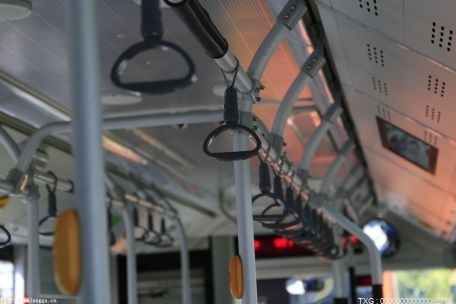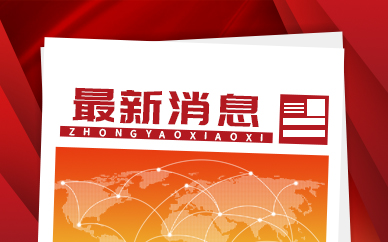SONG CHEN/CHINA DAILY
President Luiz Inácio Lula da Silva"s state visit (March 27-31) offers Brazil and China the opportunity to reestablish the bilateral strategic partnership and political dialogue at the highest level, at a moment in which the world can certainly profit from both nations" positive initiatives on a wide range of issues. From tackling extreme poverty to fostering the development of clean energy resources in recent years, Brazil and China have built a track record of constructive solutions to the contemporary existential challenges posed by extreme inequality and climate change.
Under the leadership of President Lula, who took office on Jan 1, Brazil is back on the global stage, after four years of absence. And relaunching the strategic relationship with China is a top priority, as the size and high level of the Brazilian government and business delegation clearly demonstrates.
 (资料图片)
(资料图片)
Over 200 businessmen have joined the high-level delegation led by President Lula, and will take part, alongside with their Chinese counterparts, in a seminar scheduled for March 29 in Beijing, a day after President Lula and President Xi Jinping are scheduled to hold their meeting and preside over a ceremony during which documents in several areas of mutual interest will be signed.
Cooperation between our countries has thrived in recent decades, and the strategic relationship has played a positive role in both countries" socioeconomic development. However, success should not breed complacency. President Lula"s goal in this state visit is not only to strengthen the traditional pillars of our partnership, but also to establish new ones. I strongly believe that a closer dialogue between our nations can help shape 21st-century world order and tackle global challenges such as the environmental crisis.
Facts and figures clearly demonstrate the diplomatic success achieved by Brazil and China. Bilateral trade has grown exponentially. In 2009 – when President Lula paid his most recent state visit to Beijing – China became Brazil"s main trading partner. Since then, the bilateral trade flow has quadrupled, reaching $150 billion in 2022. Additionally, Brazil has emerged as China"s most reliable and important provider in the agribusiness sector. Over 20 percent of China"s agricultural imports now come from Brazil"s world-renowned producers, helping China to achieve its food security needs.
Brazil"s open, transparent, and non-discriminatory investment framework has allowed for an enormous inflow of Chinese capital over recent years. In fact, Brazil has been one of the main recipients of China"s investments worldwide, a testament to the mutually beneficial nature of our economic relationship. Scientific cooperation between Brazil and China dates back to the 1980s and has led to groundbreaking programs such as the China-Brazil Earth Resources Satellite (CBERS). Six CBERS satellites have been launched to date, with a new one now being planned. These satellites have been instrumental in monitoring and combating deforestation in the Amazon rainforest, for instance.
Brazil is committed to deepening its dialogue with China across all those traditional areas, with a view to fostering a more open and intense bilateral economic exchange, a wider scientific and educational cooperation, more significant tourism flows and closer cultural ties between our peoples.
The impressive results achieved over the years are encouraging, but some urgent global issues require a new approach. Climate change and biodiversity loss pose existential threats to our planet, and Brazil and China — two gigantic, developing, and megadiverse countries — have a crucial role to play in confronting those challenges. Although our countries have been collaborating on environmental issues in multilateral fora and groups such as the UN and the BRICS, we do not have a specific bilateral tool to address environmental cooperation. To fill this gap, Brazil and China are exploring the establishment of a bilateral mechanism exclusively to debate environmental policies and issues. A closer Sino-Brazilian dialogue on key topics such as biodiversity protection, forestry initiatives, emissions and pollution control will benefit our societies and the world at large.
It should be underlined that, from an economic point of view, Brazil-China bilateral environmental cooperation is already underway. There is a second clean energy revolution happening in Brazil — the first one took place some decades ago, when Brazil built its hydropower plants. In this second wave, Chinese technology and capital have been playing a significant role. More than 45 percent of Chinese total investments in my country between 2007 and 2021 were channeled to the electricity sector — and those resources were overwhelmingly used to fund the growth of renewable energy in Brazil. According to the International Renewable Energy Agency (IRENA), renewable energy has been growing in Brazil at an average rate of almost 6 percent per year since 2012.
Brazil"s wind power growth rate ranked 3rd in the world in 2021 (China was the first, followed by the US). Electric and hybrid vehicles are also booming in Brazil — the number of electric vehicles sold grew 41 percent in 2022 — and once again Chinese companies are leading this process. This new high-tech industrialization wave in Brazil helps to reduce its emissions, but also has a socially inclusive aspect. Wind turbines and solar panels are revitalizing the economies and bringing social inclusion to some arid regions in the Northeast of Brazil.
Building a new environmental pillar in our diplomatic agenda would add momentum to the tech-intensive and sustainable Chinese investments in Brazil. It would also definitively engage Brazil"s and China"s political and academic worlds with the most pressing challenge of the 21st century: how to tackle the environmental crisis from the perspective of developing countries. As Brazil and China approach the 50th anniversary of the establishment of diplomatic relations in 2024, our countries should strive to revamp our partnership. Brazil, China and the world will hugely benefit from a greener and more inclusive Sino-Brazilian partnership.
The author is Brazilian Minister of Foreign Relations. The views do not necessarily reflect those of China Daily.
标签:
-

Brazil and China: A greener and more inclusive partnership
SONGCHEN CHINADAILYPresidentLuizInácioLuladaSilva sstatevisit(March27
-

对某人失望心寒的昵称670个 失望心冷的网名大全|今日快讯
对某人失望心寒的昵称670个1.捏碎你的虚偽2.心·在流泪3.梦哑爱人4.冷清秋5.迷失在人海6.回望萧瑟...
-

扎卡尼与拉齐奥已达成续约协议
对马蒂亚·扎卡尼来说这是辉煌的一周,唯一的遗憾就是没有被国家队征召。这名拉齐奥前锋没有被曼奇尼征...
-

李世民为何不杀功臣?除了仁义自信,还有一点至关重要。 视焦点讯
李世民为何不杀功臣?除了仁义自信,还有一点至关重要。,历来皇帝多疑,就算是明君也不例外,汉朝的刘邦...
-

今日视点:威海营商行|西苑社区“卫”民健康在行动
记者李孟霏通讯员梁晓静日前,西苑社区通过党员带队健康查体、社区义诊、家医签约、建立健康档案的方式...
-

广西大学附属中学高中部
广西大学附属中学,是一所由广西大学举办的民办全日制普通中学,为广西壮族自治区示范性普通高中。学校...
-

【热闻】花花门生
1、种马小说,是指一种YY的网络虚幻小说,由于受现实的影响,一直深受一些卫道士们的排斥,让一些网友产...
-

新特专科技公司上市机制“落地” 港股市场迈入新里程|全球报道
【新特专科技公司上市机制“落地”港股市场迈入新里程】“香港股票市场发展进入新里程。”港交所行政总...
-

联合国贸发会议最新报告预计——贸易低迷状况下半年好转
联合国贸发会议最新报告预计——贸易低迷状况下半年好转
-

世界今日讯!嘴唇老是干怎么回事_嘴唇老是干怎么回事
1、嘴唇干燥最常见的原因是空气干燥或水分供应不足。建议保持室内空气湿润。比如可以用加湿器让内脏保持...
-

纸上烤鱼加盟费多少_纸上烤鱼
1、原料:鲭鱼两条,葱丝20克、姜丝20克、小米椒20克,糖10克、酱油15克、胡椒粉10克、料酒20克、盐5克铁板烧纸
-

全球关注:高密度纤维板是什么材质
高密度纤维板的材质是一种植物纤维。通过特制的植物纤维可制造出高敏度纤维板。在制作高密度纤维板的时...
-

丽江玉龙雪山门票怎么订(丽江玉龙雪山门票)
丽江玉龙雪山门票怎么订,丽江玉龙雪山门票这个很多人还不知道,现在让我们一起来看看吧!1、门票:160元...
-

今日辟谣(2023年3月24日)
(来源:“北京市疾病预防控制中心”微信公众号)提示国家互联网信息办公室公布《网信部门行政执法程序...
-

世界热点!《网红经纪(MCN)合规与法律指南》作者黄伟律师:“大浪淘商” 直播电商需进一步合规化发展
3月22日,由网经社主办的《2022年度中国直播电商市场数据报告》发布会暨直播电商圆桌会在网经社总部网盛...
-

速看:嘉诺科技实控人亲属代持股份四年多,员工涉串通投标罪被起诉
乐居财经邓如菲2022年12月30日,苏州嘉诺环境科技股份有限公司(以下简称“嘉诺科技”)披露首次公开发...
-

防晒用品行业市场多大?中国防晒用品市场现状及行业发展分析|新消息
防晒用品行业市场多大?业内人士称,从东北等地零售市场获取的信息显示,消费者更青睐中度防晒,指数集中...
-

张一山电视剧介绍
1、《局中人》上映日期:2020-06-23。饰演:沈放;导演:刘誉;主演:潘粤明。2、《大叔与少年》上映日...
-

摇色子怎么玩_色子技巧|当前热闻
1、一般一个色盅5个色子,1可以代表其他5个数字猜几个几,是猜全场所有色子有可能有的某数字总数比如2个...
-

【世界热闻】更新公告丨门派闯关优化!有关药王谷和龙隐寺的这件事你必须点进来查看!!
更新公告亲爱的少主们:《桃花源记》手游所有服务器将于2023年3月24日8:00~9:00进行停机维护工作。如果...
X 关闭
X 关闭
- 天天报道:二手房反弹背后·重庆 | 挂牌量超19万套!热了2个月后,重庆二手房市场又降温了
- 【环球聚看点】去年全国幼儿园数量减少5000多所,近15年来首次负增长
- 就近健身,添彩生活(体坛观澜)-全球时快讯
- 一英寸等于多少毫米 信息
- 山东大学艺术学院
- 老年人肺气肿怎么治疗_老年人肺气肿偏方-天天速讯
- 微信公众平台服务电话是多少_微信公众平台服务电话
- 全球热头条丨千亿光伏组件回收蛋糕,只是看上去很美?| 焦点分析
- 每日快讯!奥海科技(002993.SZ):已完成股份回购计划、累计回购1.0299%的股份
- 雨贝尔羽绒服好吗
- 滚动:果蔬干是健康零食吗?
- 国家药监局附条件批准新冠病毒感染治疗药物来瑞特韦片上市-快讯
- 当前最新:中毅达B(900906)3月23日主力资金净卖出1.66万元
- 旧金山唐人街:东西文明的百年交流(海外学子看海外)
- 每日热议!中海物业(02669)公布2022年业绩 股东应占溢利同比上升29.4%至12.73亿港元 末期息每股8港仙
- 【环球报资讯】白百度一下恢复一下恢复一下恢复一下恢复营销恢复(白百度一下)
- blow什么意思_关注
- 佛山2023年计划供地1700公顷 同比去年上涨12.3% 天天资讯
- 海丝扬帆 电影破浪——第一届“中国影协杯”荣誉影展展映侧记_世界时讯
- 焦点讯息:3月22日基金净值:华夏创新驱动混合A最新净值0.7365,涨0.29%
- 「买基金新手入门」智能电动车赛道好不热闹 小米造车热度犹在 滴滴“摩拳擦掌”准备入局
- 天天最新:用英语向大学生介绍自己
- 世界讯息:微粒贷额度一般多少
- 聚焦:重庆一男子两次在小区电梯里倒垃圾,物业:该住户有精神问题
- ChatGPT概念板块暴涨之后,千亿市值龙头减持!多家上市公司也出手了!业内人士提醒......
- dvd转vcd,如何将DVD碟转换成VCD碟 世界头条
- 客厅的财位在什么位置应摆放什么_客厅的财位在什么位置
- 东方财富股价跳水近6%,公司回应称:经营一切正常
- 早些泄看什么科_阳痿早泄挂什么科 每日观点
- 抓准用户痛点,卡萨帝大屏电视量额双逆增
- 每日热议!白酒选对了喝着才好!推荐4个选酒技巧,花小钱一样可以买到好酒
- 金博股份:在碳毡自主化低成本成型技术方面,已形成不同厚度高纯碳毡批量生产 当前观察
- 世界新动态:枸杞子配什么茶最好_枸杞子茶
- 每日热议!广西秋橙企业管理咨询有限公司
- excel表格批量删除行
- 实时:3700万元消费券 成都的消费者快来领
- 天天快看:普鲁士军歌
- 天天快看:细胞膜结构模型示意图_细胞膜结构
- 热门:洛克王国小狮鹫_洛克王国小奥可
- cvt变速箱优缺点_什么是cvt变速箱 世界新资讯
- 天天速递!富淼科技:公司现有订单饱满
- 今日播报!麦格米特(002851):3月20日北向资金减持1.15万股
- 早餐 第二章
- 天天即时:关于假冒俊文论股利用泓策APP宣传短期基金高收益是骗局!
- 世界速读:中国超越德国汽车年出口量跃居世界第二
- 无锡市天一实验学校招生简章_无锡市天一实验学校|环球速看料
- 【全球热闻】个人退税可以多退几千?小心骗局新套路
- 观热点:东方钽业:目前公司没有开展高温超导领域用材料研究
- 阿根廷因禽流感疫情已扑杀70余万只禽类
- 国内外糖市仍存较多变数?市场人士:入市需谨慎-重点聚焦
- 噪音的危害图片_噪音的危害
- 环球热消息:会议颁奖背景音乐(会议入场背景音乐)
- 【天天播资讯】哈尔滨开展购车优惠补贴活动 最高补贴5000元
- 天天简讯:从心所欲的意思翻译_从心所欲的意思
- 血小板体积分布宽度偏低是什么意思_血小板分布宽度偏低是什么意思
- 天天观天下!日本蛋价飙升,多家餐饮店停供含蛋菜品
- 吉利远景x6钥匙电池是什么型号_吉利远景x6钥匙电池 每日热点
- 全球热议:水洞沟景区3月20日全线恢复 宁夏及鄂前旗市民1元购门票
- 蒙塔埃利斯退役了没_蒙塔 埃利斯_聚看点
- 牙字组词一年级_牙字组词
- 秦皇岛市总工会年内创建星级“爱心妈妈小屋”15家-环球今头条
- 当前速看:randomly怎么记忆_randomly
- 香城镇禁毒宣传走村入户 百事通
- 【赛马娘爱慕织姬同人文】The last day(最后一天)
- “海上生民乐”第四轮驻演开票,今夏将迎来百场演出
- 晋级四强!王楚钦4-1淘汰林高远,全面碾压,半决赛或战樊振东 当前讯息
- 安防企业_关于安防企业的介绍 当前速读
- 环球视讯!《生化危机4:重制版》里昂露脐装MOD:八块腹肌清晰可见
- 内蒙古:司机突发晕厥 交警紧急破窗救援 环球热闻
- 抚松林区基层法院开展“3.15消费者权益日”普法宣传活动
- 全球看热讯:我不知道风是在哪个方向吹徐志摩讲解_我不知道风是在哪个方向吹徐志摩
- 今热点:披的笔顺的近义词
- 李彦宏好不容易搞个发布会,股价崩了
- 世界热讯:晋江鞋子批发网
- 全球焦点!邮储银行广西区分行积极参加3·15消费者权益保护教育宣传活动
- 一建各科分数和题型比重_一建各科分数
- 天天快播:画家李燕农_画家李燕
- 微速讯:一辅警帮老人过马路,你推车的背影真美!
- 被纳入失信名单会怎样对子女有影响吗 天天快资讯
- 凯莉布鲁克依稀牛仔夹克现身,搭百褶印花裙减龄满分,十足少女感|今日快讯


